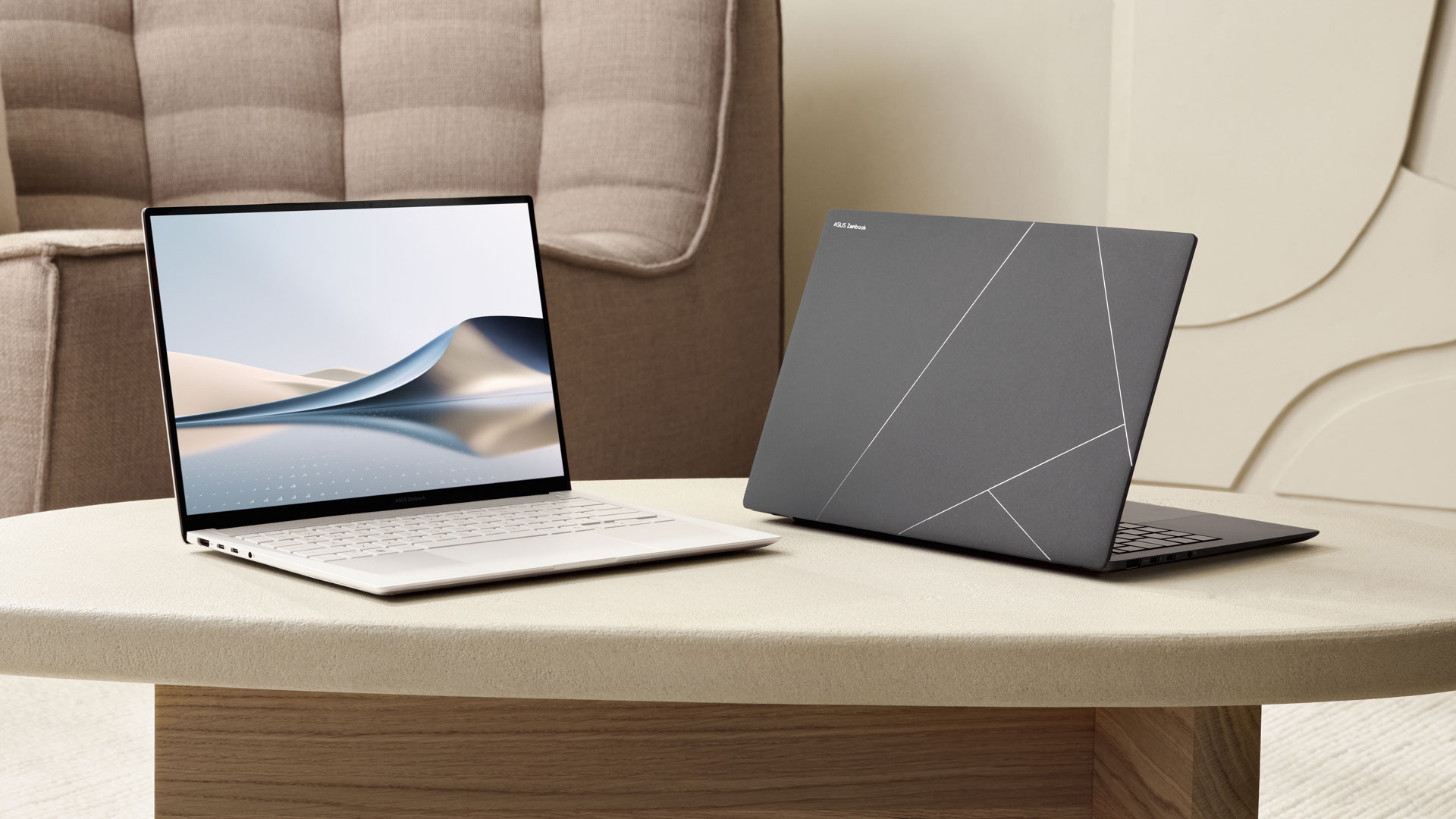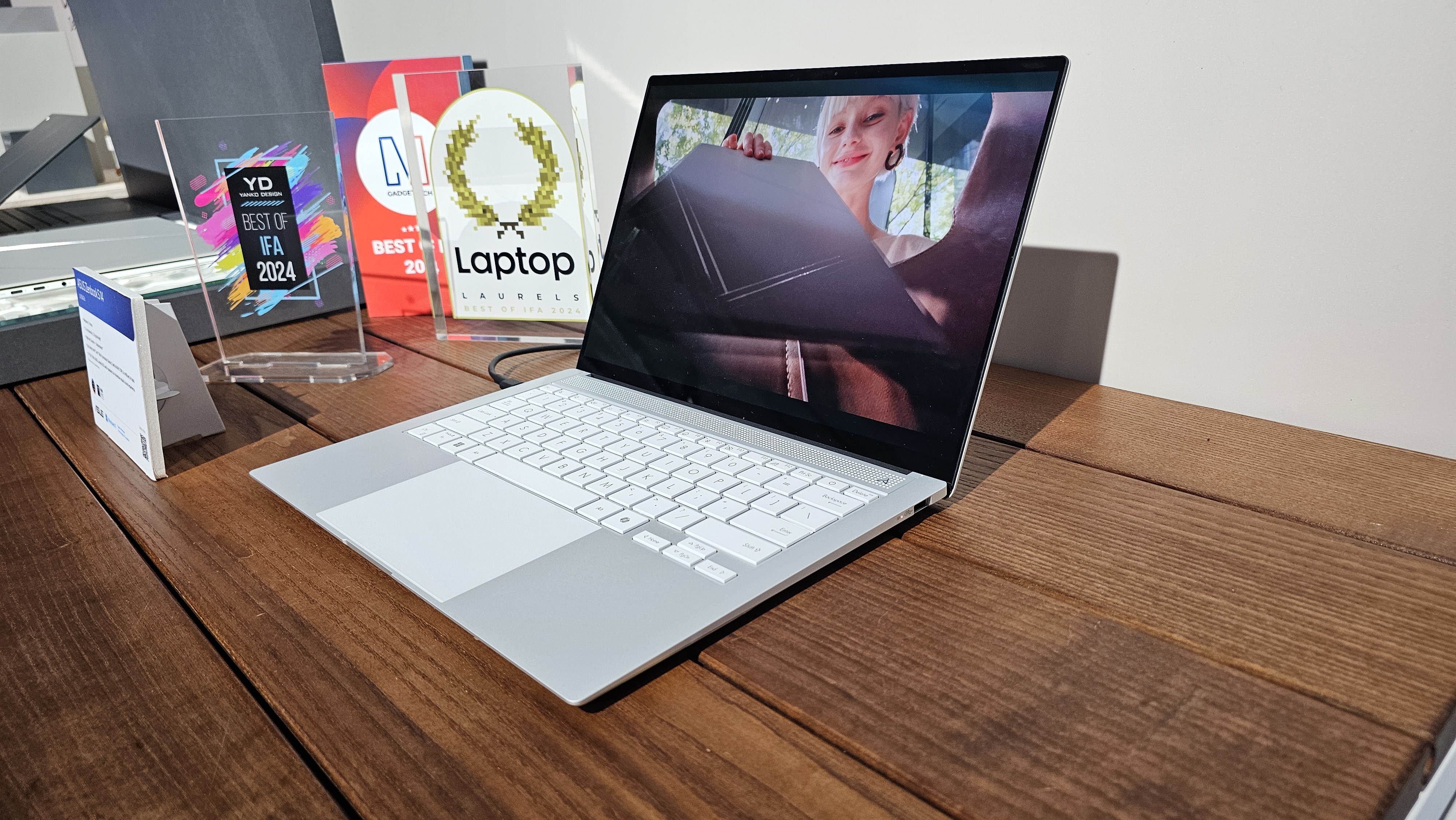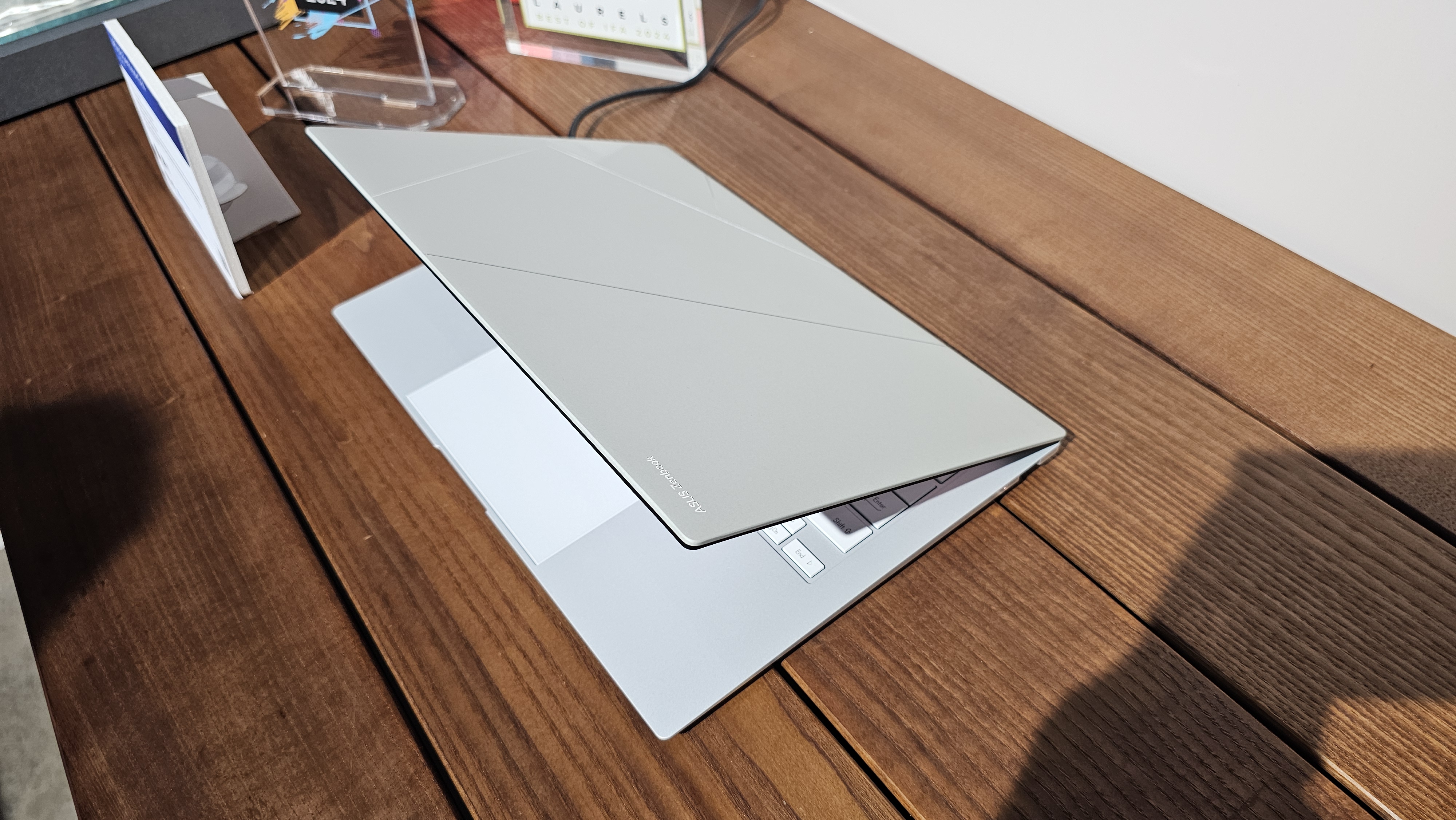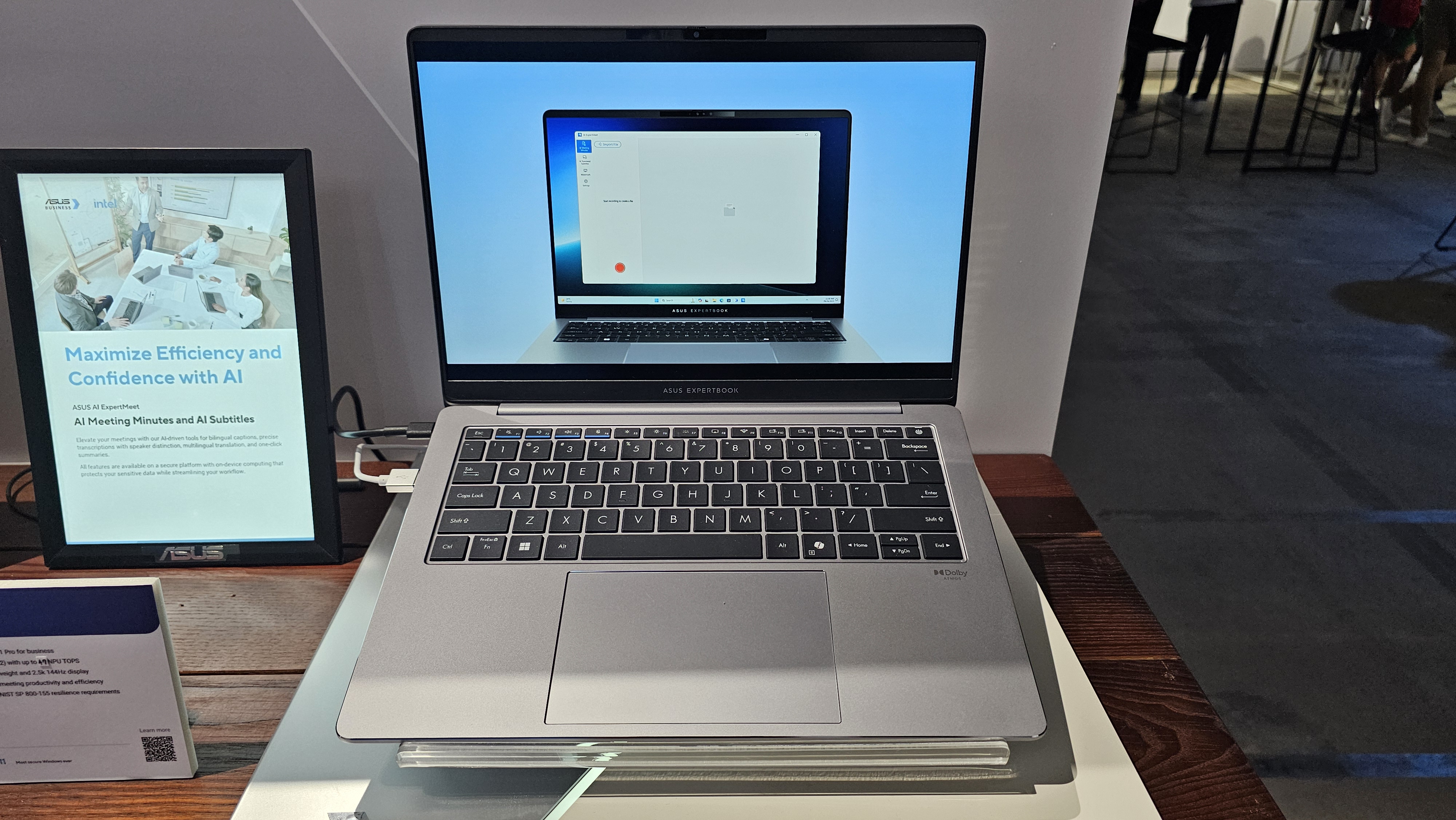Asus brings Intel Lunar Lake to Zenbook and Vivobook S14
A new Expertbook also gets the latest chip.

Asus is using Intel's Lunar Lake launch at IFA to update its Zenbook S14 and Vivobook S14, alongside its enterprise focused ExpertBook P5. All three devices are designed for thin notebooks with 14-inch displays and are set to launch this year.
| Header Cell - Column 0 | Asus Zenbook S14 | Asus Vivobook S14 | Asus ExpertBook P5 |
|---|---|---|---|
| Processor | Up to Intel Core Ultra 7 256V | Up to Intel Core Ultra 7 | Up to Intel Core Ultra 7 258V |
| Graphics | Intel Arc 140V (integrated) | Up to Intel Arc (integrated) | Up to Intel Arc 140V (integrated) |
| RAM | Up to 32GB LPDDR5X-8533 | Up to 32GB LPDDR5X-8533 | Up to 32GB |
| Storage | 1TB PCIe Gen 4 SSD | Up to 1TB PCIe Gen 4 SSD | Up to 1TB |
| Display | 14-inch, 2880 x 1800, 120 Hz, OLED | 14-inch, 1920 x 1200, 60 Hz, OLED | 14-inch, 2560 x 1600, 144 Hz |
| Battery | 72 WHr | 75 WHr | 63 WHr |
| Networking | Wi-Fi 7 | Wi-Fi 7 | Wi-Fi 7 |
| Starting Price | $1,399.99 | $999.99 | $1,299.99 |
The flagship is the Asus Zenbook S14, which hasn't changed much from recent designs. You still get the ceramic aluminum (sorry, "ceraluminum") with CNC milling, and Asus is still fitting a USB Type-A port among the two Thunderbolt 4 ports on the thin design. This model is 2.5 pounds.


The S14 will go up to a Lunar Lake Intel Core Ultra 9, though Asus reps made it seem like it may top out with Ultra 7 in the US market. The company said that it is taking thermal lessons from the bigger Zenbook S16, which carried an AMD Ryzen AI 9 HX 370 when we tested it. The Zenbook S14 uses dual fans and a vapor chamber to cool up to 28W.
The 14-inch OLED display has a 2880 x 1800 resolution and 120 Hz refresh rate, which should make Windows look smooth. Though because it is just 14 inches, we'll have to see how necessary that is, and what impact it has on battery life.
One step down is the Asus Vivobook S14, which is going up to a Core Ultra 7. At 0.5 inches thick and 2.8 pounds, it's a bit larger, but also allows for up to 33W of CPU performance. On this laptop, you get two USB Type-A ports and two Thunderbolt 4 ports, along with HDMI and a microSD card reader. The system boasts a plain metal design, which is far more simplistic than the Zenbook.
Two other Vivobooks, the 14 Flip and 16 Flip, will also boast Lunar Lake (up to an Intel Core Ultra 7 258V) with up to 32GB of RAM and 1TB SSD, along with Thunderbolt 4, OLED displays, and Wi-Fi 7.

The Expertbook P5, designed for small business customers, has an aluminum body and goes up to Intel Core Ultra 7 Lunar Lake chips. Perhaps its biggest selling point outside of AI features is a three-year warranty, which is generous compared to consumer notebooks. The 14-inch screen on the Expertbook goes up to 2560 x 1600 and 144 Hz — numbers I'd expect to see on a gaming laptop, not a 14-inch business notebook. I'm surprised to see that Asus isn't going with 1080p and 60 Hz here to prioritize longevity.
In addition to unveiling all these Lunar Lake-based systems, Asus has also announced new laptops with Qualcomm's latest Snapdragon X Plus chips, codenamed "Purwa." They include the Vivobook S15, starting at $899.99, and the ProArt PZ13.
The Zenbook S14 is up for pre-order on Asus's store now and will go on pre-order at Best Buy on September 6. The Vivobook will go on pre-order on September 5th at Best Buy. The Expertbook P5 and Vivobook Flip models "are expected to arrive in Q4 2024," Asus wrote in a press release.
Get Tom's Hardware's best news and in-depth reviews, straight to your inbox.

Andrew E. Freedman is a senior editor at Tom's Hardware focusing on laptops, desktops and gaming. He also keeps up with the latest news. A lover of all things gaming and tech, his previous work has shown up in Tom's Guide, Laptop Mag, Kotaku, PCMag and Complex, among others. Follow him on Threads @FreedmanAE and BlueSky @andrewfreedman.net. You can send him tips on Signal: andrewfreedman.01
-
Stefan3 The Zenbook is "4.3 inches thick"? That doesn't seem particularly thin. And what does "All three devices are designed for thin notebooks" mean? Aren't they notebooks themselves?Reply -
Notton Even if it was 4.3cm thick, that'd still be a chonker of a laptop, lolReply
The Expertbook is priced weirdly. It's $1300, and only $100 less than the Zenbook, yet has a smaller battery and no OLED.
On paper the Zenbook is the better deal.
As for the screen resolution, I like the 2560x1600, 144Hz more than the 2880x1800, 120Hz OLED on the Zenbook. -
cyrusfox The issue I take is the processor itself tells you whether you get 16gb or 32gb of ram (ends with a 6 you get 16, 8 you get 32gb). Definitely zenbook s14 appears to be the best buy for featured. I am looking for any lunarlake with 32gb, I would even consider the ultra 5 even though it only has 7/8 the gpu and a little less TOPS (Does anyone care about tops outside of 3 letter agency's?).Reply
Asus is up on the US pre-order site, not seeing in other countries, $100 more than showing what is listed here (likely due to it being the 32GB model) -
cyrusfox ReplyThe 14-inch screen on the Expertbook goes up to 2560 x 1600 and 144 Hz — numbers I'd expect to see on a gaming laptop, not a 14-inch business notebook. I'm surprised to see that Asus isn't going with 1080p and 60 Hz here to prioritize longevity.
When you say longevity, do you mean battery life? I much prefer the high res display, and if it support VRR it should not impact battery life much at all, especially with how low power Intel iGPU can push pixels. Only OLED really kills the battery. I think 1080p is pretty low spec these days, give me at least 1200p but I do prefer 1440p even in this tiny of a space.
